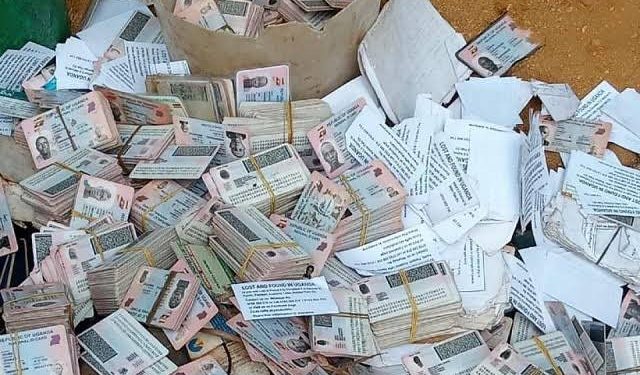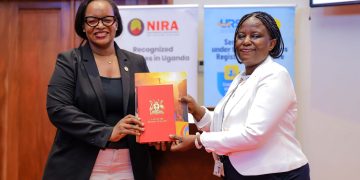The National Identification and Registration Authority has announced that it has produced and dispatched more than five million National Identification Cards to districts across the country under its ongoing mass enrollment and issuance program.
This announcement was ade on Monday at police headquarters in Naguru as the NIRA registrar, Claire Ollama was addressing journalists.
Ollama, noted that the authority’s card production process has greatly accelerated in recent months, with most districts now in possession of thousands of ready IDs awaiting collection.
“I am glad to report that production is in high gear. We have produced and dispatched more than five million cards to different districts of this country, and many people have already started receiving their national IDs,” Ollama said.
She, however, expressed disappointment over the low rate of card collection, urging Ugandans who registered to visit their respective district or subcounty NIRA offices to pick up their cards.
“These cards are in your districts, but the pickup is pathetic. Please, if you enrolled, go to your nearest office and collect your card,” she appealed.
According to data shared by NIRA, Kampala alone has over 261,000 cards ready for pickup, followed by Kasese (69,000), Tororo (51,000), Kamuli (45,853), and Kayunga (43,000) among others. Smaller districts such as Kitagwenda (2,674) and Lyantonde (2,454) have also received their share of printed IDs.
Ollama emphasized that having a National ID is essential for accessing key government services, justice systems, and socio-economic opportunities.
She further assured Ugandans that production and dispatch are ongoing and that delays for some individuals are part of the phased nature of the project.
“We registered at different times, and we will receive at different times. What matters is that production is happening and cards are being issued,” she said.
During the briefing, Ollama also unveiled the new generation National ID card, which comes with enhanced security features to prevent forgery and ensure durability.
“The new card has an engraved image that cannot fade, ghost images for security, a barcode for electronic verification, and raised name features to help visually impaired people identify their cards by touch,” she explained.
She added that the barcode feature will make it easier for banks and institutions to detect fake IDs, while the engraved photographs will protect against tampering.
Ollama also used the platform to warn the public against middlemen who exploit citizens seeking ID services, stressing that all NIRA services are free of charge.
“Your citizenship does not require another person. Do not pay middlemen. Walk into the nearest office confidently—our staff are paid to serve you,” she cautioned.
She encouraged Ugandans to take responsibility for their registration and collection process, adding that avoiding brokers ensures accuracy of personal data and protects citizens from fraud.
NIRA continues to roll out the mass registration and ID issuance project nationwide, targeting every eligible Ugandan with the goal of ensuring universal legal identity for all citizens.




















